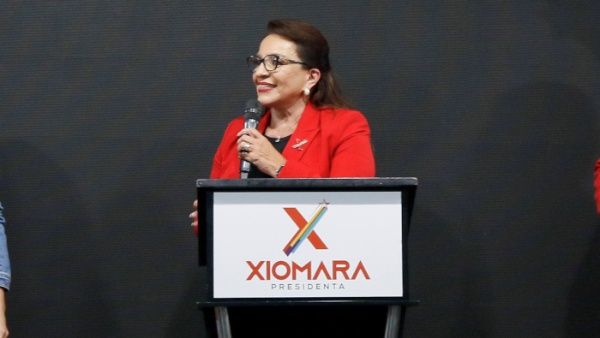Xiomara Castro, 62 years old, crowns a social struggle that has been going on for a long time.
The elected president of Honduras, Xiomara Castro, is preparing to take office as head of state this Wednesday, January 27 for the four-year period 2022-2026, in succession to outgoing president Juan Orlando Hernández.
The future ruler has made history in the Central American nation because, by winning the elections on November 28, she became the first woman to be elected to the highest position in the country, and also did so as the person who has received the most votes. (1,716,793).
Xiomara Castro, 62 years old, crowns in this way a struggle that she has had for a long time and that made her one of the fundamental figures of the resistance in the country since her husband Manuel Zelaya was overthrown in 2009.
Xiomara Castro, who in her Twitter account profile defines herself as “mother, grandmother, wife and President Elect of the five-star country, Honduras,” was born in Tegucigalpa, the country’s capital, on September 30, 1959.
She has a degree in Business Administration. She married José Manuel Zelaya Rosales in 1979, with whom she has fathered four children.
Throughout her life she has worked in various activities for the benefit of underprivileged children through the Association of Wives of Members of the Rotary Club of Catacamas and the Day Care Center for Children in the same municipality.
Likewise, she has developed a managerial and administrative activity in economic projects in the sectors of livestock, wood and crops, among others, according to the biography that appears on the site: libre.hn/xiomaracastroz
Later, she was part of the women’s movement of the Liberal Party.
When her husband won the Presidency, she became, in January 2006, the first lady of Honduras, where she stands out nationally and internationally for her social programs and leadership with the United Nations in the fight against HIV/AIDS.
Gilberto Ríos, a member of the Free Party, recalls -in an interview with journalist Carlos Aznárez and published on teleSUR- that during that period Castro also assumed responsibility for the Solidarity Network.
“This network was a process that was carried out in conjunction with the UN and other international institutions where poverty and extreme poverty in the country were focused,” she noted.
After the overthrow of Zelaya, in June 2009, Castro began to lead the street demonstrations of the then National Popular Resistance Front (FNRP).
Castro was the first presidential candidate of the Free Party, created a year and a half after the coup against Zelaya, and with which, finally and with historic popular support, she won the elections last November, to be the first woman president of Honduras.

